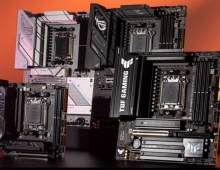
Sun to Use Intel Server Chips as Well as AMD
Computer maker Sun Microsystems confirmed on Monday it will use processors from No. 1 chip maker Intel, a blow to Intel's growing rival AMD.
Sun will use Intel Xeon chips in some of its servers, the powerful networking computers it sells to businesses and other institutions. Sun also uses AMD's Opteron server chips.
Sun will start using the Intel architecture in the first half of this year, in addition to the Opterons it has used for years. The new alliance includes joint engineering, design and marketing efforts, and Sun will eventually deliver a series of Intel-based systems that support Solaris, Windows and Linux operating systems.
Sun joins the three other large U.S. computer makers -- Dell , Hewlett-Packard and IBM -- in selling computers that use both AMD and Intel chips.
"We're a different company than we were three or four years ago," Sun Chief Executive Jonathan Schwartz said in an interview, noting that clients preferred to see cooperation. "Customers don't value having suppliers who want to kill each other."
In the last five years, Sun has revamped its entire product line, and Schwartz has pushed to sell Sun's Solaris operating system more aggressively and offer customers more choice in mixing and matching software, services and computer hardware.
Stifel Nicolaus analyst Cody Acree said in a note before the announcement he expected the market to react to Intel's market share gain, even if the financial impact was minimal.
"Up until recently, AMD was consistently gaining share," Acree said. "Now, AMD has missed the last two quarters, Intel appears to be steadily improving, and now Sun is giving Intel obvious market share."
For Intel CEO Paul Otellini, it is the biggest customer win since Apple switched to Intel from IBM chips in 2005. Over the years, Apple and Sun have taken digs at Intel over what the two companies once said was lagging technology.
Sun Chairman Scott McNealy once referred to an Intel chip called Itanium as "Itanic," after it did not take off in the server market as Intel and Itanium co-developer HP had hoped.
"Our product line is substantially better (now)," Otellini said in an interview. Intel overhauled its entire chip line last year, which is now based on its Core 2 Duo chip architecture that is more powerful and consumes less power.
McNealy tapped Schwartz, his protege, last April to succeed him as CEO. Schwartz also holds the title of president.
The Sun and Intel deal sprang from a dinner the two CEOs shared last June at a San Francisco restaurant, Schwartz said. "It was two people relatively new in their jobs," said Otellini, who became Intel CEO in May 2005, of why the two companies opted to work together now rather than earlier.
Sun will start using the Intel architecture in the first half of this year, in addition to the Opterons it has used for years. The new alliance includes joint engineering, design and marketing efforts, and Sun will eventually deliver a series of Intel-based systems that support Solaris, Windows and Linux operating systems.
Sun joins the three other large U.S. computer makers -- Dell , Hewlett-Packard and IBM -- in selling computers that use both AMD and Intel chips.
"We're a different company than we were three or four years ago," Sun Chief Executive Jonathan Schwartz said in an interview, noting that clients preferred to see cooperation. "Customers don't value having suppliers who want to kill each other."
In the last five years, Sun has revamped its entire product line, and Schwartz has pushed to sell Sun's Solaris operating system more aggressively and offer customers more choice in mixing and matching software, services and computer hardware.
Stifel Nicolaus analyst Cody Acree said in a note before the announcement he expected the market to react to Intel's market share gain, even if the financial impact was minimal.
"Up until recently, AMD was consistently gaining share," Acree said. "Now, AMD has missed the last two quarters, Intel appears to be steadily improving, and now Sun is giving Intel obvious market share."
For Intel CEO Paul Otellini, it is the biggest customer win since Apple switched to Intel from IBM chips in 2005. Over the years, Apple and Sun have taken digs at Intel over what the two companies once said was lagging technology.
Sun Chairman Scott McNealy once referred to an Intel chip called Itanium as "Itanic," after it did not take off in the server market as Intel and Itanium co-developer HP had hoped.
"Our product line is substantially better (now)," Otellini said in an interview. Intel overhauled its entire chip line last year, which is now based on its Core 2 Duo chip architecture that is more powerful and consumes less power.
McNealy tapped Schwartz, his protege, last April to succeed him as CEO. Schwartz also holds the title of president.
The Sun and Intel deal sprang from a dinner the two CEOs shared last June at a San Francisco restaurant, Schwartz said. "It was two people relatively new in their jobs," said Otellini, who became Intel CEO in May 2005, of why the two companies opted to work together now rather than earlier.





















